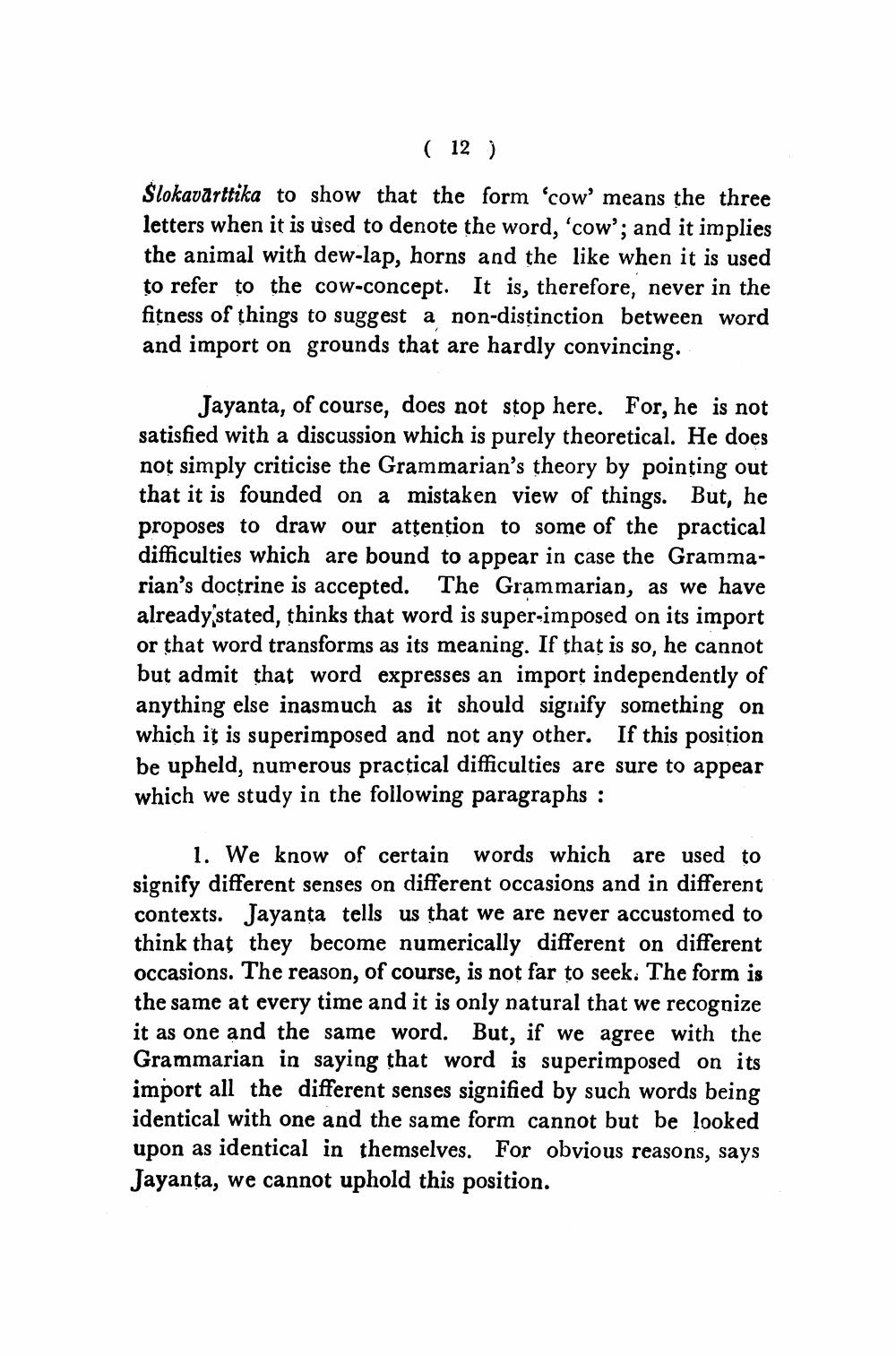________________
(12
)
Slokavārttika to show that the form 'cow' means the three letters when it is used to denote the word, 'cow'; and it implies the animal with dew-lap, horns and the like when it is used to refer to the cow-concept. It is, therefore, never in the fitness of things to suggest a non-distinction between word and import on grounds that are hardly convincing.
Jayanta, of course, does not stop here. For, he is not satisfied with a discussion which is purely theoretical. He does not simply criticise the Grammarian's theory by pointing out that it is founded on a mistaken view of things. But, he proposes to draw our attention to some of the practical difficulties which are bound to appear in case the Grammarian's doctrine is accepted. The Grammarian, as we have already stated, thinks that word is super-imposed on its import or that word transforms as its meaning. If that is so, he cannot but admit that word expresses an import independently of anything else inasmuch as it should signify something on which it is superimposed and not any other. If this position be upheld, numerous practical difficulties are sure to appear which we study in the following paragraphs :
1. We know of certain words which are used to signify different senses on different occasions and in different contexts. Jayanta tells us that we are never accustomed to think that they become numerically different on different occasions. The reason, of course, is not far to seek. The form is the same at every time and it is only natural that we recognize it as one and the same word. But, if we agree with the Grammarian in saying that word is superimposed on its import all the different senses signified by such words being identical with one and the same form cannot but be looked upon as identical in themselves. For obvious reasons, says Jayanţa, we cannot uphold this position.




